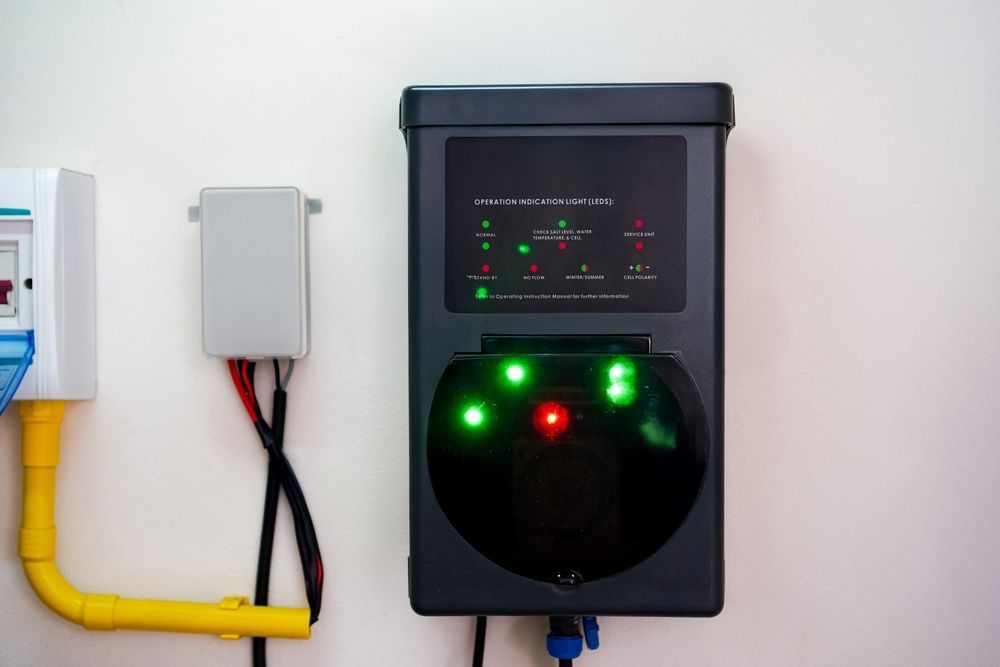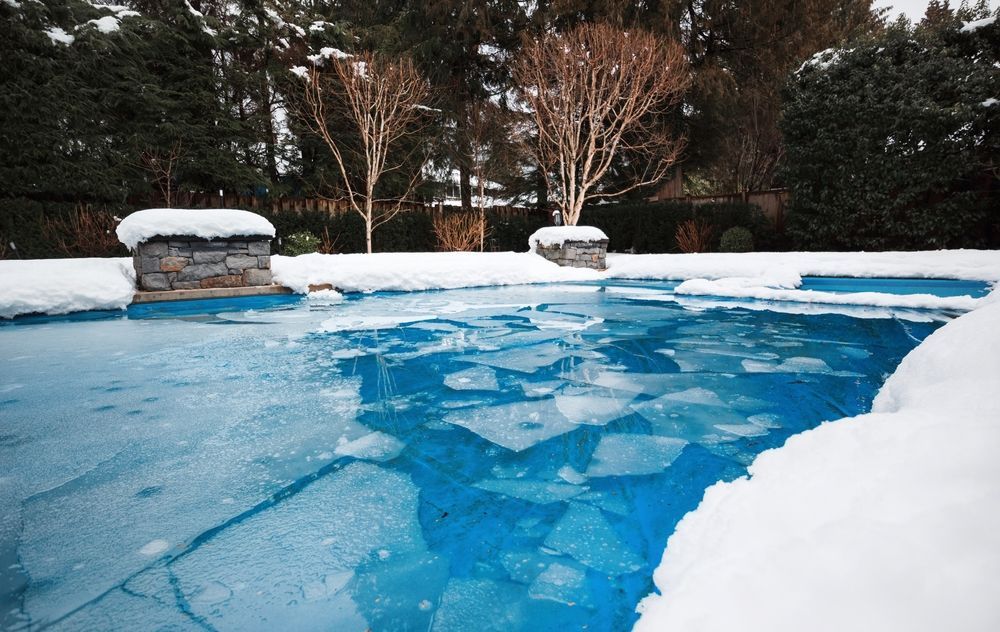Top 5 Winter Pool Care Mistakes Pool Owners Make in South Carolina
Owning a pool in South Carolina is a year-round commitment, even when the temperatures drop and swimming becomes a summer memory. While the Palmetto State rarely sees harsh winter conditions like other parts of the country, pool owners still need to maintain their pools properly during the off-season. Unfortunately, many homeowners make critical errors in winter pool care that can lead to expensive repairs, algae growth, equipment damage, and overall reduced pool health. Understanding the common pool mistakes specific to winter will help preserve your investment and ensure your pool is ready when the warm weather returns.
Neglecting to Maintain Proper Water Chemistry
One of the most common pool mistakes made during winter is assuming that water chemistry doesn't matter when the pool is not in use. This misconception can lead to imbalances in pH, alkalinity, and sanitizer levels that encourage algae growth, scale formation, and corrosion. Even in colder months, organic matter can enter the pool, and the water can still become a breeding ground for bacteria and other contaminants.
In South Carolina, winters are mild enough that algae can still thrive if water conditions are right. Without proper chemical maintenance, the pool water can turn green, and the walls may become slippery with biofilm. Additionally, unbalanced water can corrode metal fixtures, damage your liner, and even shorten the lifespan of your pool equipment.
To avoid this mistake, test your water every couple of weeks and adjust chemicals as necessary. Maintaining a stable chlorine level and balanced pH throughout winter will protect your pool surfaces and save you from a lengthy cleanup when spring rolls around.
Failing to Run the Pool Pump Regularly
It’s easy to believe that your pool equipment can take a break in winter, but that’s far from the truth. One of the critical aspects of winter pool care is circulation, and that means keeping your pump running regularly. When water stands still for long periods, it’s more prone to algae growth, debris accumulation, and chemical imbalances.
Many South Carolina pool owners make the mistake of shutting off their pump system entirely or only running it sporadically. While freezing temperatures are uncommon, they do happen occasionally, especially in the Upstate region. If your pump is not running during a freeze, the water inside pipes and equipment can solidify, expand, and cause cracks or burst pipes.
To ensure your pool water stays healthy and your equipment remains intact, run the pump at least a few hours each day during winter. In the event of an unexpected freeze, running water through the system helps prevent costly freeze damage. A timer can help automate the process and remove the guesswork from your winter pool care routine.
Not Covering the Pool Properly
Another mistake that can lead to serious consequences is improper use or total neglect of a pool cover. Some South Carolina pool owners assume that because winter isn’t severe, a cover is optional. However, without a properly fitted pool cover, debris like leaves, branches, pollen, and even small animals can find their way into your pool.
Over time, this debris decays and introduces bacteria and algae spores, making the water cloudy and potentially unsafe. A poorly secured or low-quality cover can even collapse into the water, introducing contaminants and complicating the cleaning process. In areas like Charleston or Columbia where trees remain active year-round, falling leaves and organic matter can quickly accumulate and wreak havoc on an uncovered pool.
Choose a durable, tightly fitting cover that prevents debris from entering and allows rainwater to run off properly. Regularly check for sagging, pooling water, or signs of wear and tear. Maintaining a good pool cover is a simple yet essential step in preventing major cleanup efforts in the spring.
Ignoring Freezing Weather Risks
South Carolina’s winters are generally mild, but that doesn’t mean freezing weather should be ignored. This is one of the common pool mistakes that catches homeowners off guard, especially those who have recently relocated from warmer coastal areas or who are used to less seasonal maintenance. A surprise cold front can bring temperatures below freezing, which can spell disaster for a pool that isn't prepared.
When water freezes inside pipes, pumps, or filters, it expands. This can lead to cracks, leaks, and even the complete failure of essential equipment. While you may not need to winterize your pool fully as homeowners do in northern climates, it's wise to have a plan for freeze protection. That means running your pump continuously when temperatures are expected to drop below 32°F and keeping your system circulating to prevent ice formation.
You should also inspect your freeze protection system or timer, if installed, to ensure it's working properly. Pool owners in Greenville or Spartanburg may face more frequent freeze warnings than those on the coast, but no matter where you are in the state, ignoring this weather risk can cost you thousands in repairs.
Skipping Inspections and Preventive Maintenance
Winter is the perfect time to get ahead of pool maintenance before the busy summer season begins, yet many South Carolina homeowners fail to take advantage of this downtime. Neglecting inspections and preventive maintenance is a common pool mistake that can turn into a spring headache. From worn seals and cracked tiles to malfunctioning pumps or filters, small problems can snowball if left unattended through the winter months.
Without regular checkups, issues may go unnoticed until you reopen the pool and find that your water is murky, your pump won’t start, or worse, that leaks have developed. These are not only costly to fix but may delay your pool’s availability when the season returns.
Schedule a professional inspection or take time to perform a thorough DIY check of your pool system. Look for leaks, test the functionality of your pump and heater, and make sure your automation or timer systems are functioning. If you use a pool service, ask them to include a winter maintenance visit in your plan. Proactive care now leads to a smoother, cleaner opening in the spring and reduces the risk of emergency repairs.
Conclusion
South Carolina’s winters may not bring the snow and deep freezes seen in northern states, but they still pose challenges for pool owners who want to protect their investment and enjoy a worry-free reopening in the spring. From ignoring water chemistry to neglecting freeze warnings, these common pool mistakes can compromise your pool’s health and lead to expensive repairs.
Effective winter pool care doesn’t require an extensive time commitment, but it does demand consistency and awareness of local climate conditions. By keeping your water balanced, running the pump regularly, covering your pool properly, planning for cold snaps, and conducting seasonal maintenance, you can avoid the most frequent pitfalls and ensure your pool stays in excellent condition all year long.
Whether you’re in Myrtle Beach, Columbia, or the foothills of the Blue Ridge, taking these winter care steps seriously will help you make the most of your pool investment. A little effort during the off-season pays off with crystal-clear water and a smooth start when swimming season returns.
Need Comprehensive Pool Services Near You?
If you want to avoid these common winter pool mistakes and keep your pool protected, clean, and ready for spring, we’re here to help. At Oasis Pool Warranty and Services, LLC., we take pride in providing South Carolina homeowners with reliable winter maintenance, expert inspections, and year-round support that keeps your pool in its best condition. Reach out to us today, and let our friendly, experienced team take the worry out of winter pool care so you can enjoy peace of mind all season long.












